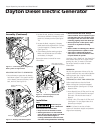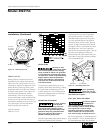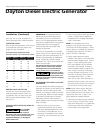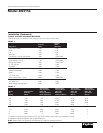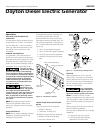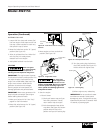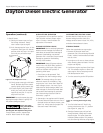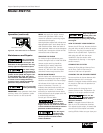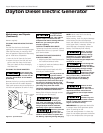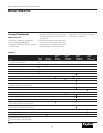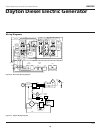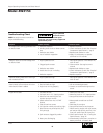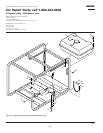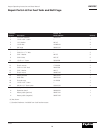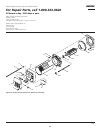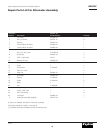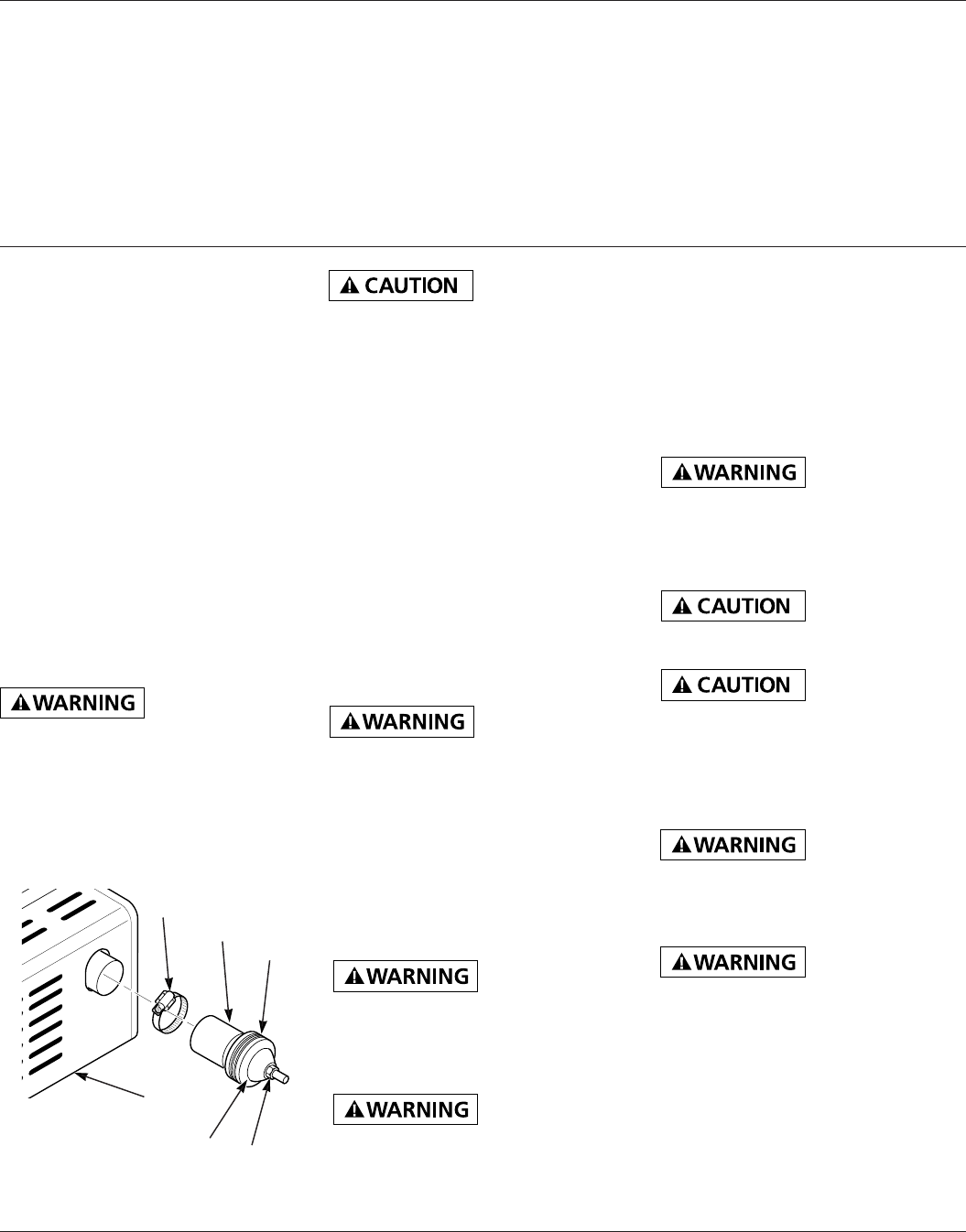
Dayton Operating Instructions and Parts Manual
16
Dayton Diesel Electric Generator
®
4W315C
107358
NOTE: Much more fluid is lost during
summer than in winter.
Before starting, check for physical damage
to the battery and also the electrolyte
levels, and replenish with distilled water up
to the upper mark if necessary. When
actual damage is discovered, replace the
battery. Check battery fluid monthly.
Before charging,
remove the cap
from each cell of the battery. Charge
the battery in a place where there is
plenty of ventilation. Discontinue
charging if the electrolyte temperature
exceeds 45
°
C (117
°
F).
Do not charge the
battery with the
battery cable still connected. The diodes
will be damaged by the high voltage.
Connect the (+)
lead of the charger
to the (+) terminal of the battery, and
the (–) lead to the (–) terminal. Re-
versed polarity will damage the
charger rectifier or the battery.
element regularly.
CLEANING AND REPLACING THE FUEL
FILTER
The fuel filter also has to be cleaned
regularly to insure maximum engine output.
Clean fuel filter every six months or 500
hours of operation. Replace fuel filter every
year or 1000 hours of operation.
1. Drain the fuel oil from the fuel tank.
2. Loosen the nuts of the fuel cock and
pull out the filter from the fuel tank
filler port. Wash the filter thoroughly
with diesel fuel.
A clogged spark
arrester hinders
the flow of exhaust gas. This reduces
engine output, increases fuel con-
sumption and makes starting difficult.
Make sure you clean your spark
arrester regularly.
TIGHTEN CYLINDER HEAD BOLTS
Tightening the cylinder head bolts requires
a special tool. Don’t try it yourself. Consult
your Yanmar dealer.
CHECKING THE INJECTION NOZZLE,
INJECTION PUMP, ETC.
• Adjusting the valve head clearance for
the intake and exhaust valves.
• Lapping of intake and exhaust valves.
• Replacing piston ring.
All these require special tools and skills.
Consult your Yanmar dealer.
Do not perform the
injection nozzle
test near an open fire or any other kind
of fire. The fuel spray may ignite. Do
not expose bare skin to the fuel spray.
The fuel may penetrate the skin and
cause injury to the body. Always keep
your body away from the nozzle.
CHECKING AND REPLENISHING BATTERY
FLUID AND CHARGING THE BATTERY
Battery fluid will be lost through continu-
ous charging and discharging.
The battery
electrolyte
contains sulfuric acid. Protect your
eyes, skin, and clothing. In case of
contact, flush thoroughly with water
and get prompt medical attention,
especially if your eyes are affected.
Batteries generate
hydrogen gas,
which can be highly explosive. Do not
smoke or allow flames or sparks near
the battery, especially during charging.
CLEANING THE SPARK ARRESTER
If the engine has
been running, the
muffler and the spark arrester will be
very hot. Allow these to cool before
proceeding.
Remove the lock nut, end cap and diffuser
discs and clean off the carbon deposits.
Clean spark arrester every three months or
100 hours of operation (or earlier if dirty).
Clamp
Spark
Arrester
Diffuser
Discs
Muffler
End Cap
Lock Nut
Figure 25 - Spark Arrester
Maintenance and Repairs
(Continued)
Storage
Remove all fuel
from fuel tank
before storing generator. Store fuel in
approved container. Store fuel in a
well-vented area free of open flames
or sparks.
The muffler
becomes very hot
during operation. The muffler remains
hot for a while after shutdown. Let
engine cool before storing.
IMPORTANT: Keep generator level while
in storage. Never store generator upside
down or standing on end.
Cover and store generator in a clean, dry
place. Do not expose generator to extreme
high or low temperatures during storage.



